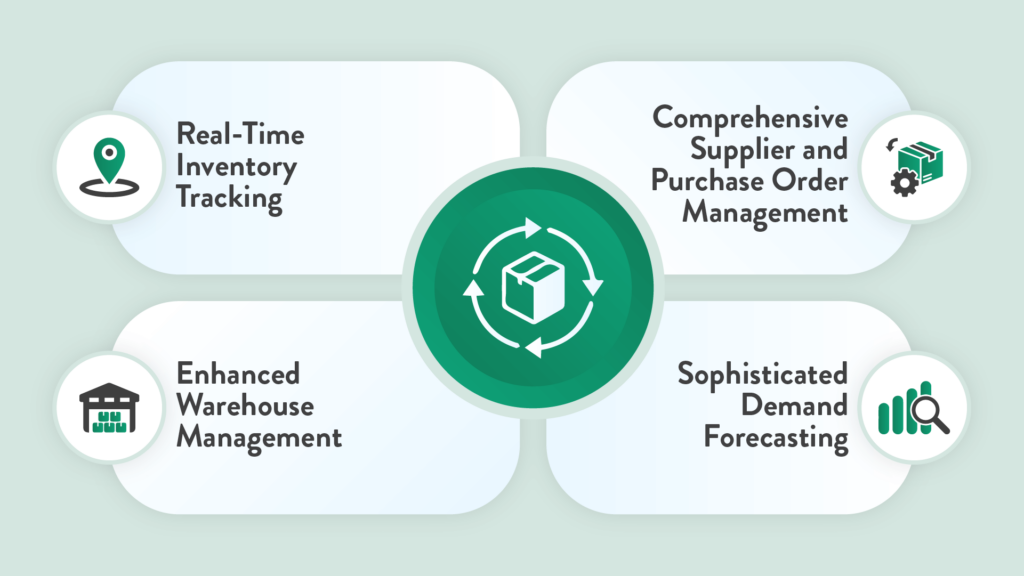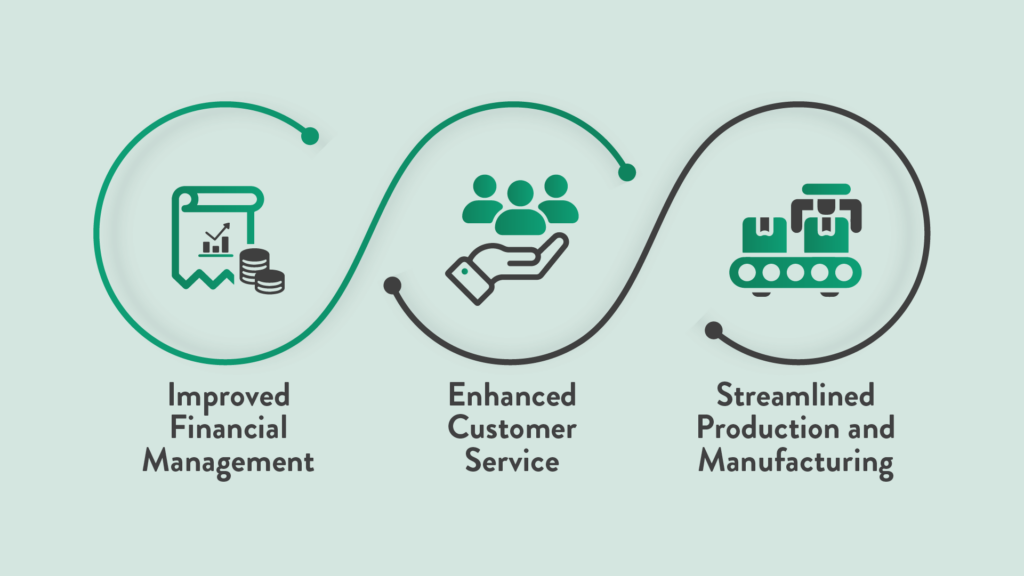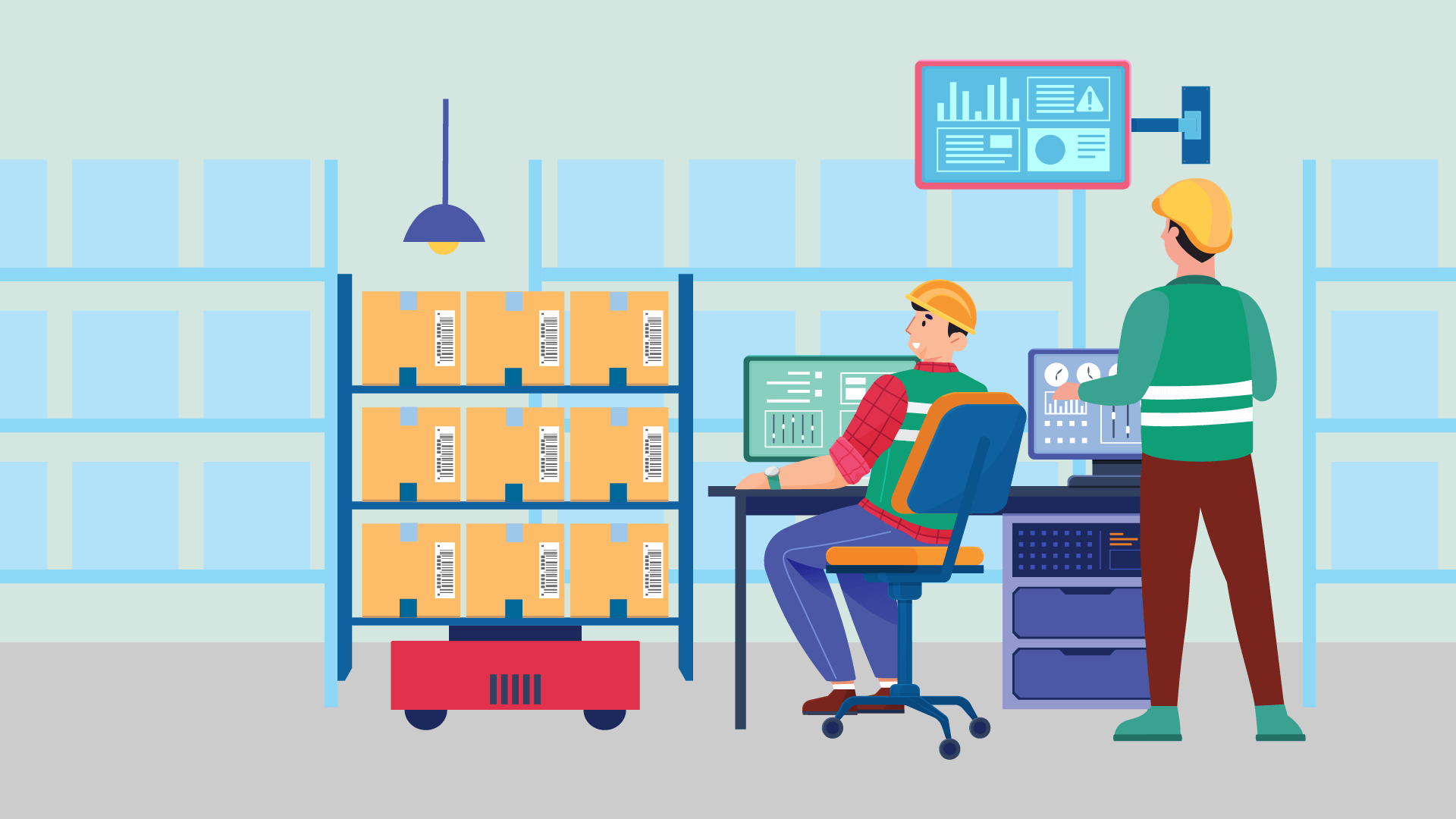Summary
- ERP systems offer comprehensive solutions for distribution, including real-time inventory tracking, supplier management, and warehouse optimization.
- Beyond inventory, ERP integrates financial, customer service, and production aspects, enhancing overall efficiency and decision-making.
- Transitioning to an ERP-powered operation, like 10X ERP, can transform inventory management, providing a competitive edge in the rapidly evolving distribution landscape.
Inventory management is vital yet complex in today’s fast-paced distribution landscape. Balancing vast quantities of inventory items while ensuring availability, optimizing warehouse space, and maintaining cost-effectiveness is challenging. Fortunately, technology has introduced us to Enterprise Resource Planning (ERP) systems to mitigate this burden. But what exactly are ERP systems, and how can they transform the inventory management process for small to midsize distribution businesses? Let’s explore this intriguing subject together!
Understanding ERP Systems

ERP systems are comprehensive software platforms that collect, store, manage, and interpret data from various business activities. Think of them as the ‘brain’ of your business operation, effortlessly coordinating different functions into a single system, enhancing efficiency, and fostering more informed decision-making.
These platforms are versatile and can be tailored to meet the unique needs of distribution businesses, whether it’s sales, customer service, manufacturing, or, most importantly, inventory management.
A New Era of Inventory Management with ERP

The old-fashioned inventory management methods were often a high-stakes game of balance and precision. A single mistake could lead to considerable financial loss, disrupt the supply chain, and adversely affect customer satisfaction. But what if there was a way to turn this intricate process into a strategic advantage for your business? Here’s how an ERP system can make it possible:
1. Real-Time Inventory Tracking:
Real-time inventory tracking is fundamental for effective inventory management, and this is where ERP systems shine. By offering live updates on stock levels, delivery statuses, and pending orders, ERP systems minimize the risk of stockouts and overstocks, enhancing operational efficiency and customer satisfaction.
2. Comprehensive Supplier and Purchase Order Management:
An ERP system consolidates all procurement-related activities into a single, accessible platform. From automating purchase orders to evaluating supplier performance, ERP platforms provide valuable insights into supplier relationships, allowing businesses to negotiate better deals and refine their procurement process.
3. Enhanced Warehouse Management:
With an ERP system, businesses can obtain a bird’s-eye view of their warehouse operations. This helps optimize space usage and refine the picking, packing, and dispatch procedures, resulting in quicker and more precise deliveries.
4. Sophisticated Demand Forecasting:
ERP systems employ advanced algorithms for accurate demand forecasting. By analyzing historical sales data and market trends, businesses can optimize inventory levels, diminish holding costs, and avert potential sales losses due to stockouts.
How ERP Systems Minimize Errors and Save Time

Any process heavily reliant on manual input is susceptible to errors, ranging from mismatched records and misplaced items to incorrect deliveries. Beyond the financial ramifications, such mistakes can lead to customer dissatisfaction and negatively impact your brand’s reputation.
ERP systems address these risks by automating mundane tasks and enhancing data accuracy. Additionally, they simplify workflows, allowing you to spend more time on strategic decision-making, a vital component for business expansion.
Beyond Inventory Management: The Extended Benefits of ERP

The advantages of an ERP system extend far beyond inventory management. It’s a multifunctional tool designed to cater to various business facets in distribution, including:
1. Improved Financial Management:
By amalgamating financial data with sales and inventory information, an ERP system provides a holistic view of your business’s financial health, facilitating more precise and effective financial planning and decision-making.
2. Enhanced Customer Service:
An ERP system aids in improving customer service by compiling comprehensive customer profiles, tracking interactions, and ensuring quick and efficient responses to customer inquiries.
3. Streamlined Production and Manufacturing:
With ERP, businesses can plan, schedule, and monitor production activities efficiently, minimizing waste and boosting productivity.
Conclusion
Transitioning from traditional inventory management practices to an ERP-powered operation could be a game-changing step for your distribution business. It offers real-time, precise inventory data, reduces errors, optimizes warehouse functions, and saves precious time.
In an industry where staying ahead of the curve is paramount, it’s worth considering a robust ERP solution like 10X ERP. With a platform designed to simplify your inventory management process, 10X ERP can help you gain that competitive edge. Ready to experience the difference? Visit www.10xerp.com today. Our dedicated experts are eager to guide you through the transformative journey of integrating ERP into your operations and let your business soar to new heights.
